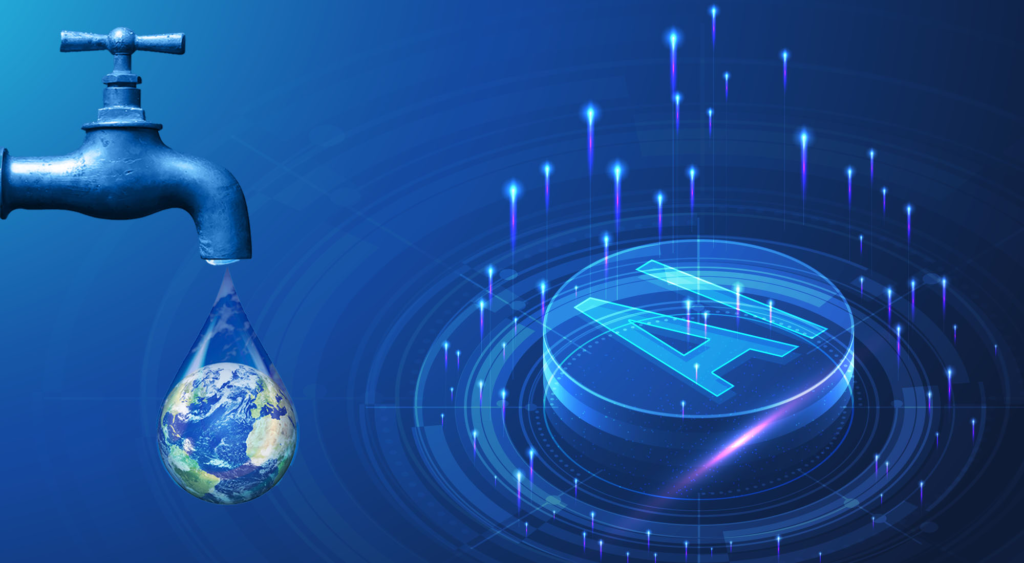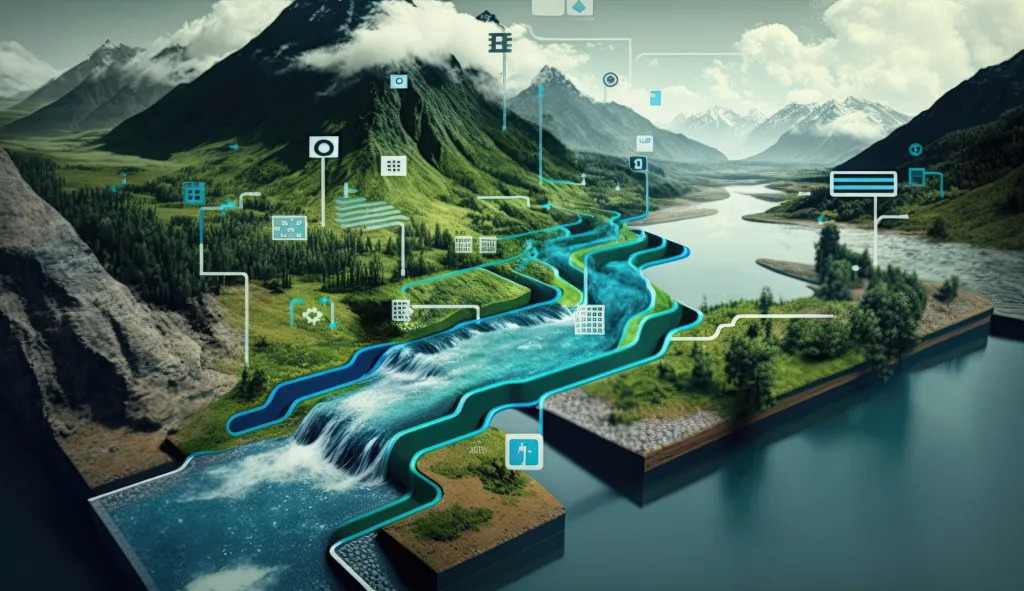
Introduction to the problem of water scarcity
Water scarcity is a growing concern that affects millions of people around the globe. As populations rise and climate change intensifies, the demand for this precious resource continues to outpace supply. Traditional methods of water management often fall short in addressing these challenges, leading to increased pressure on our already strained ecosystems.
But what if technology could turn the tide? Enter artificial intelligence (AI) – a game-changing force poised to revolutionize how we approach water conservation. With its ability to analyze vast amounts of data and offer tailored solutions, AI is paving the way for smarter resource management strategies that not only enhance efficiency but also promote sustainability. From agriculture to urban planning, innovative AI-powered tools are emerging as key players in our quest for efficient water usage.
As we explore how AI technology can reshape our relationship with water, it becomes clear: embracing these advanced solutions could be vital in ensuring a sustainable future for generations to come.
How AI technology can help conserve water
AI technology offers groundbreaking methods to enhance water conservation. Smart sensors embedded in irrigation systems collect real-time data on soil moisture levels and weather conditions.
These systems analyze the information to optimize watering schedules, ensuring that crops receive just the right amount of water. This leads to significant reductions in wasteful practices.
In urban settings, AI-powered platforms can monitor water usage patterns in households and industries. By identifying areas of excessive consumption, targeted recommendations help users adjust their habits.
Moreover, predictive analytics can forecast drought occurrences based on historical climate data. This enables better resource management strategies in agriculture and municipal setups alike.
The integration of machine learning algorithms enhances precision agriculture by tailoring irrigation practices specific to each crop type. Such advancements not only save water but also promote healthier plant growth through more efficient nutrient delivery.

The benefits of using AI-powered water conservation solutions
AI-powered water conservation solutions offer a multitude of benefits that transform how we manage this precious resource. By leveraging advanced data analytics, these technologies can optimize water usage across various sectors.
One significant advantage is the increased efficiency in irrigation systems. Smart irrigation technologies adjust watering schedules based on real-time weather conditions and soil moisture levels. This precision minimizes waste and maximizes crop yield.
Additionally, AI enhances drought management strategies. Predictive algorithms identify potential drought patterns, allowing resource managers to allocate water effectively before shortages arise.
Using smart sensors, farmers receive insights into their specific needs, promoting sustainable farming practices while reducing costs associated with excessive water use.
Moreover, integrating AI with existing environmental technology fosters collaboration among stakeholders dedicated to sustainability goals. Their combined efforts promote innovative solutions for conserving our planet’s vital resources.
Case studies of successful implementation
One notable case study comes from California, where farmers adopted AI-driven smart irrigation systems. These systems analyze real-time weather patterns and soil moisture levels. As a result, they optimized water usage dramatically.
In Australia, vineyards implemented precision agriculture technologies powered by AI. They monitored vine health through smart sensors that track various environmental factors. This approach minimized water waste while ensuring the grapes thrived.
Another example is found in Singapore’s urban landscape. The city deployed data analytics to manage its water resources more efficiently. By using predictive algorithms, it improved rainwater harvesting techniques for sustainable resource management.
These implementations showcase how diverse industries leverage technology for effective drought management and enhanced water efficiency across different climates and settings. Each success story highlights innovative paths toward sustainability without compromising productivity or quality.

Potential challenges and limitations
Despite the promising advancements in AI-powered water conservation, several challenges exist. One major hurdle is the initial cost of implementation. High-tech solutions can be expensive to install and maintain, which may deter smaller farms or communities from adopting them.
Data privacy poses another concern. The collection of vast amounts of water usage data raises questions about ownership and how that information will be used. Stakeholders must navigate these issues carefully to build trust.
Additionally, not all regions have equal access to technology. Rural areas might struggle with connectivity issues that limit their ability to leverage smart sensors effectively.
Reliance on technology can sometimes result in overlooking traditional practices that are also effective for resource management. Balancing innovation with established methods is crucial for successful drought management and sustainability efforts.
Future developments and possibilities
The future of AI-powered water conservation holds immense potential. As technology evolves, the integration of smart sensors will become more sophisticated. These devices can monitor soil moisture levels in real-time, allowing for targeted irrigation strategies that adjust to changing weather conditions.
Advancements in data analytics are also on the horizon. By leveraging machine learning algorithms, farmers can predict water needs with greater accuracy. This leads to optimized resource management and reduced waste.
Moreover, innovations in precision agriculture will enhance crop yields while using less water. The combination of AI solutions and sustainable farming practices could redefine how we approach agriculture amid climate change challenges.
Collaboration among tech companies, researchers, and policymakers is crucial for fostering these developments. As they work together, new platforms may emerge that promote ecosystem resilience through effective drought management techniques and improved overall water efficiency across various sectors.

Conclusion: The role of AI in creating a more sustainable future for water resources
The integration of AI in water conservation represents a significant step toward addressing the urgent challenge of water scarcity. With advanced data analytics and smart sensors, we can optimize resource management like never before. These technologies not only enhance water efficiency but also support sustainable farming practices crucial for our planet’s health.
As climate change continues to impact our environment, innovative solutions become indispensable. The potential for precision agriculture powered by AI ensures that each drop of water is utilized wisely and responsibly. This shift towards smarter irrigation techniques holds promise for both agricultural productivity and environmental sustainability.
Looking ahead, the role of AI solutions in drought management cannot be overstated. By harnessing real-time data and predictive analysis, we create resilient systems capable of adapting to changing conditions while conserving vital resources.
Embracing these advancements will shape a more sustainable future where responsible water usage becomes standard practice across industries and communities alike. As we continue to explore new horizons in environmental technology, it’s clear that AI-powered initiatives are key players in fostering a world where every resource counts—and together, they pave the way toward lasting change.
For more such content, keep visiting QAWire
